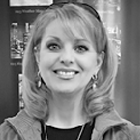Educational Background
- General Studies courses at Angelo State University
- Weather School for the Navy at Chanute Air Force Base
- Course in Broadcast Meteorology from Mississippi State University
- Certificate in Broadcast Meteorology
- NWS Operations Course at the NWS Training Center
- NWS Cooperative Observing & Data Acquisition (DATAC) Course at the NWS Training Center
Describe the career path that led you to your current job with the National Weather Service.
- I have had a fascination with weather since I was about five years old, when I begged my dad to take me to see the tornado that was threatening a nearby neighborhood. After attending college for a year, the military sent me a brochure. I soon joined the Navy as an Aerographer, which is the Navy’s term for a weather observer/forecaster; I was an Aviation Forecaster. I left the Navy after ten years and applied to the NWS with a keen desire to go to Alaska. The NWS was happy to oblige!
What do you do for the NWS?
- I have worn many hats while working for the NWS, including working in many of Alaska’s remote Weather Service Offices (WSOs). I began as a a Meteorological Technician then advanced to be the Official-in-Charge (OIC) of multiple Alaska WSOs, including Valdez and King Salmon. As a met tech in Alaska, I did a case study on a local La Nina event that was published by the AMS.
- I advanced from the OIC position in King Salmon, AK to my current position, the Observation Program Leader (OPL), at the Detroit/Pontiac Weather Forecast Office (WFO). As Detroit WFO’s OPL, I currently take care of about 70 Cooperative Observer Program (COOP) Stations across southeast Michigan. I also work operational shifts on which I do the extended forecasts and write part of the extended forecast discussion. I conduct office tours and lead Skywarn spotter training. Additionally, I create several types of multimedia for the office including posters, videos, weather stories, and graphicasts.
What was the most interesting, exciting, or impactful weather/water event you experienced while working for the NWS and why does it stand out?
- I released a weather a balloon in McGrath, AK at -50°F. It was on a night shift and I was wearing glasses. As soon as I looked up to track the balloon, my breath rose up and immediately frosted over my glasses! I had to scrape my glasses with my fingernails to see. We didn't have GPS back then, so I was fairly frantic I would lose the signal!
- We had a tornado while I working my first shift alone on the Public Desk in Detroit! It was pretty much trial by fire. I recall being very excited, yet afraid I would make a mistake.
What made you decide to pursue a career with the NWS?
- It was a natural path to take after observing and forecasting weather in the Navy for 10 years. The NWS was the perfect choice for continuing my career.
What do you like most about working for the NWS?
- I love the diversity of my job duties. I get to be involved in so many different things. The Meteorologist-in-Charge (MIC) in Detroit has been very accommodating of my interest to participate in various projects and events. I even got to train for the Damage Assessment Team that rates tornado damage. Exciting stuff! It's a great place to work!
What advice do you have for someone interested in a career with the NWS?
- While I will always cherish my Navy days - I absolutely loved the Navy - you need a degree. Military schools, unfortunately, are not given the same standing as a college degree.
What training or coursework would you recommend to someone interested in following your career path?
- I would recommend attending college and getting a degree in meteorology. The NWS has changed a great deal since I was hired in the early ‘90s. It is currently almost impossible for someone with a military background but no degree, like me, to get a job with the NWS.
